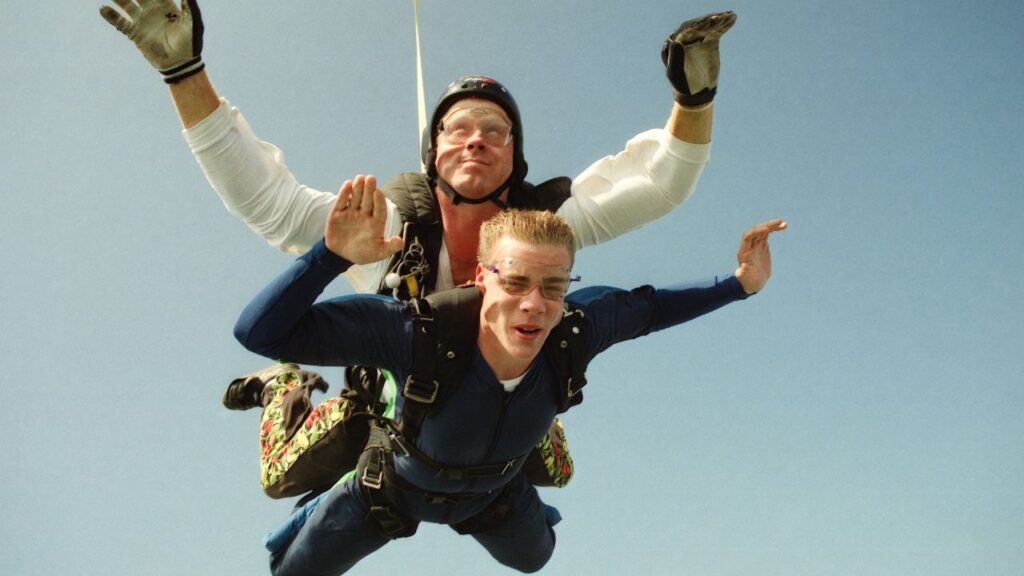The thrill of skydiving, do you love it? But, did you ever think about the risks? An accident can be bad and leave your family in financial difficulty.
Life insurance is a way of getting peace of mind – it can protect against any accidents that might happen while Skydiving.
Skydiving is a thrilling experience, however, it’s also a hazardous sport. People often don’t acknowledge the risks of jumping from an airplane. It’s essential to comprehend the dangers of extreme sports, and how life insurance can guard you if something tragic happens. This guide will give you the data you need to be aware of skydiving risks. Plus, how life insurance for skydivers can provide financial protection for your family if an adventure goes wrong.
What is Skydiving?
Skydiving is an extreme sport where you jump out of an aircraft and free-fall to the ground with a parachute. It can be thrilling and exciting but also has risks. Most people skydive at professional drop zones with trained instructors and strict safety protocols. Even with professionals, there’s an element of risk due to the complexity and the dependence on different components such as equipment and the weather.
Risks include:
- Equipment malfunctions
- Weather complications
Since you may travel far away for skydiving, there can be extra costs due to accidents or medical issues. To protect yourself and your family, it’s wise to get life insurance before skydiving.
The Risks of Skydiving
Skydiving can be exciting, but it can also be dangerous! From equipment malfunctions to changes in the weather, there are many safety hazards that skydivers need to look out for. Experienced skydivers must follow strict safety protocols and procedures to stay safe.
Equipment malfunctions are the main cause of skydiving injuries and deaths. Parachute and harness failure can cause a skydiver to fall rapidly, leading to fatal trauma. Additionally, skydivers must be aware of other potential hazards, such as strong winds and bad visibility.
How Life Insurance Can Help
If you’re an avid skydiver or just thinking about it, life insurance can secure you financially in the event of a tragedy. Most policies cover whatever the cause of death may be, but insurers usually charge high premiums or deny coverage to daredevils. It may be tough to get coverage if you already skydive.
However, there are options available to thrillseekers. Consider if your policy covers accidental death, if discounts are granted for certain jumps, and the coverage you need. Most policies automatically cover accidental death but make sure to read the clauses. If skydiving isn’t included, speak to your insurer.
Companies may offer discounts for certain jumps or related activities. Compare different providers to get the best rate. You may need to show proof that you have training prior to getting discounted rates.
Also, check that the term and amount of coverage meet your financial obligations. Looking into these will help you find the perfect life insurance policy for your lifestyle, protecting you and your loved ones.
Types of Life Insurance
Skydiving can be thrilling, but it’s important to protect your family financially should anything happen. Life insurance is a great option for this.
There are several types of life insurance. Term life gives a death benefit – no cash value – while making payments. Variable life has a death benefit and a savings account with tax-deferred interest. Universal life has adjustable premiums and death benefits, plus value accumulation for tax-deferred growth. Whole life offers long-term protection with fixed premiums and death benefit amounts.
It’s important to weigh all options and consult a qualified advisor to determine which policy is best for you. That way you can enjoy skydiving worry-free, knowing your family is protected.
Benefits of Life Insurance for Skydivers
Serious skydivers know the importance of life insurance. It can protect their families and loved ones in the event of the unthinkable. Different types of policies provide different types of coverage.
For example, life insurance can provide a death benefit to a designated beneficiary if the insured skydiver passes away while skydiving.
A permanent life insurance policy may also offer a living benefit. This could be used as a lump sum or withdrawn over time.
Income replacement is another feature of life insurance. In the case of the death of the primary wage earner, the life insurance policy can replace the lost income.
Finally, life insurance can help cover the costs of skydiving associated with an unexpected tragedy. It can even cover medical expenses if they exceed current health plan limits.
Understanding the Fine Print
When signing up for life insurance, be aware of restrictions and exclusions. These limit coverage for certain sports like skydiving. Many insurers exclude death benefits for risky activities.
Check regulations to see what your insurer will and won’t cover. They may require a medical checkup or a waiver before purchase.
Know the fine print to make sure you get adequate protection. Also, tell your insurer if you plan to do any risky activities. Some insurers provide particular coverage if specified during application. That could help if an accident happens while parachuting or BASE jumping.
Conclusion
To wrap up, skydiving is an extreme sport that, if done correctly and responsibly, can give you an adrenaline boost. With the unique risks it carries, it’s wise to buy life insurance beforehand. This will give your family financial security if you get hurt or worse.
Also, take the proper precautions to stay safe while skydiving. Adhere to safety guidelines and regulations. Taking these extra steps will guarantee a safe and remarkable skydiving experience.




